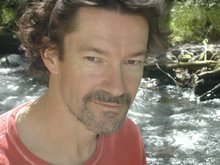To say I was surprised when I unfurled the Tribune this morning to accompany my breakfast comestibles is something of an understatement. For there, on the front page of the business section, was a rather grainy picture of Pons and Fleischmann, prime villains of the Cold Fusion fiasco of some 18 years standing. What, I thought, not CF rediscovered? Perhaps a quiet day on the news front because there was little justification for the extent of coverage; it merely stated that there was a session on the topic, sparsely attended it noted, at the recent American Chemical Society meeting (the SSCP's report still to follow on that little shindig). That there was a session at all on this tired old fraud was something of a surprise to me, but I suppose the society has to sell a few registrations - the spirit of open mindedness and so on.
While munching on my GOLEAN (but hopefully not lightly) I reflected upon those events back in the day. I was working at Amoco (now BP) in Naperville then and, being an energy company, there was naturally considerable interest in the topic; after all, it would look really bad if something as potentially important, no matter how improbable, as cold fusion was to pass by un-noticed. So, I became a member of a watchdog team to monitor "progress." The Tribune article said that PundF (there is almost a German sense about him) were given a standing O by the ACS (I did not remember that); but I do remember the physics community putting them to the sword with almost ungracious enthusiasm. Whether that says something about the difference between the culture of chemistry and physics or not I can't say. Maybe if PundF were physicists it might have been different.
We tried to maintain an open mind and evaluate the observations on their merits, no matter how unlikely it all seemed. I think part of the reason why several were prepared to go further and hail them as heroes was that it was only a few years since the epoch-making discovery of high-temperature superconductors, which were very real (although to this day significant commercial applications have eluded them), had demolished the conventional wisdom that the era of sensational breakthroughs had long passed. High Tc had turned the science world upside down with its dramatic revision of what was possible in superconductivity; so people were likely more susceptible to believe the extraordinary was possible in fusion.
The huge difference between the two discoveries was that, as is the case with any new announcement, when others flocked in to join the party, the results with CF could not be reproduced, whereas those with high Tc were all too easy to reproduce (in fact, as an aside, I gave a demo of high Tc at Plainfield High School). I remember we were visited by a "theoretical physicist," actually from a real university in Michigan if memory serves, who offered to sell us an exclusive right to his theory which explained it all for only about $70,000. We didn't bite. To imagine such con artists travelling the country trying to take corporations for a ride. There were reports of tritium from a lab in Texas A&M (if I recall) where the professor was the famous J.O'M. Bockris. To me this seemed the most reasonable and solid evidence so far; for how else to explain the presence of a new isotope, except through the action of a nuclear process? Shortly all became clear: the lab was being visited by funding agencies, and then the reports of spiking the experiments circulated. From that moment on I washed my hands of the whole business. I felt personally humiliated by those crooks in Texas.
The things that some people will do for a grant. I am sure it happens more frequently than is reported. Fortunately though, for the integrity of science and the maintenance of a reliable and practical way for its funding and dissemination of information, the instances of fraud are an extremely small portion of the whole. Years later, in another context entirely, I met an official of the University of Utah (the unfortunate birthplace of CF) who recounted the appalling embarrassment of the whole thing - at least in his eyes - for some in the university were all too eager to cash in on the new found fame. Perhaps PundF were to some extent unwitting victims, though there actions subsequent do not seem to bear that out.
Even now, as I wanted to check PundF's original location, I find the Internet full of CF sites and reports of new discoveries as if the whole thing is really still happening. There is talk of F (sans P now) joining a company called D2Fusion as a senior scientific advisor, with a goal of commercializing some new technology based on fusion. What fools or miscreants can be funding this nonsense? Nothing could demonstrate more clearly the imperative to treat the Internet with the utmost of suspicion when searching for information. Is there something in the deuterated water that hooks these people? Now if D2Fusion were to make me an offer...
Scienceblogs is shutting down
8 years ago




